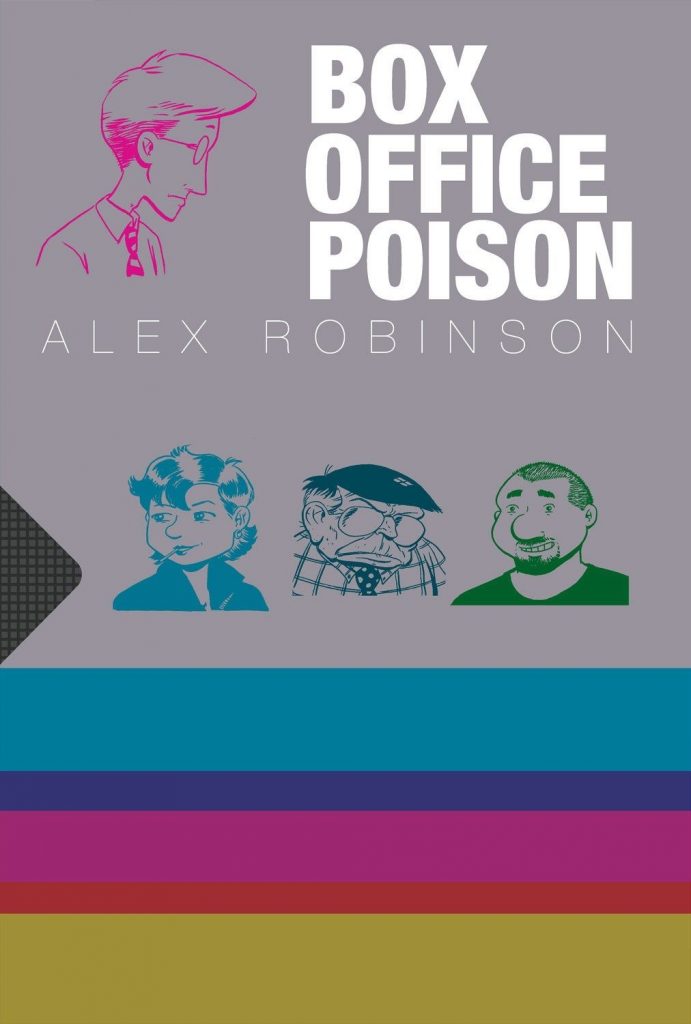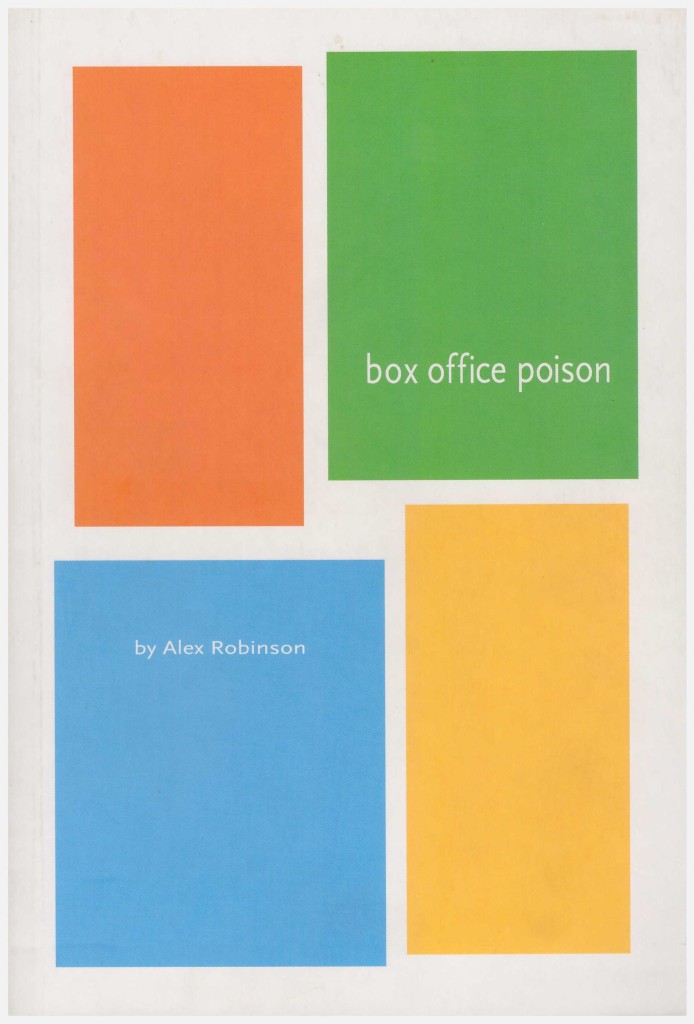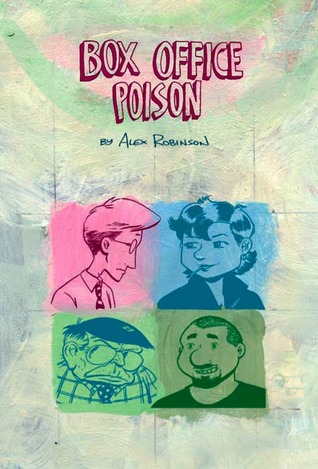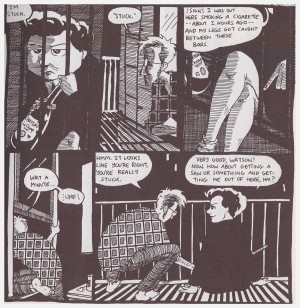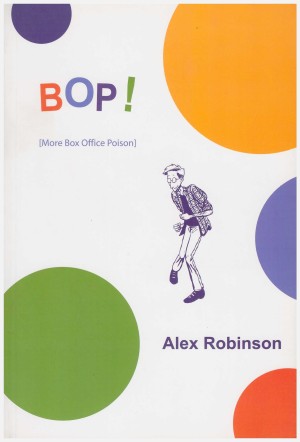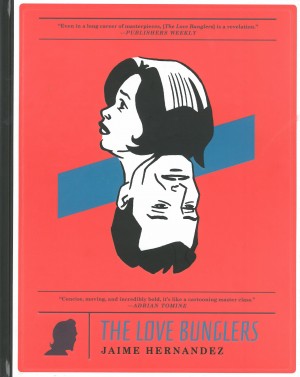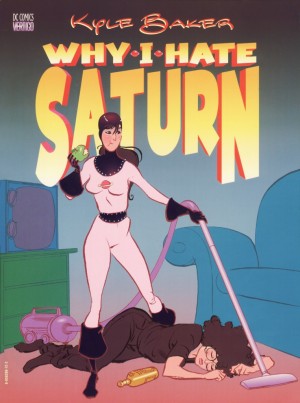Review by Frank Plowright
There is so much to love and cherish about Box Office Poison, not the least of which is seeing Alex Robinson develop from an extremely talented newcomer with a few ideas about moving characters about (seemingly influenced by Kyle Baker’s approach) into the complete dramatist. The improvement in is his art is not as immense, largely because he starts at a higher level and the influence is more obvious. Robinson has absorbed Dave Sim’s storytelling techniques and artistic quirks, and applies them extremely proficiently, yet maintains his own cartooning style. It has its limitations, but for the most part is adaptable enough to get the job done.
Our way into the cast of Brooklyn twenty-somethings of the 1990s is Sherman Davies, bored bookstore employee and prospective writer. He lucks out first time when looking for an apartment, taking the loft room rented by historian Stephen Gaedel and his partner, cartoonist Jane Pekar. Sherman’s best mate is wannabe comic artist Ed Velasquez, who eventually ends up working for old pro Irving Flavor. The character that comes to dominate the series, though, is Sherman’s eventual girlfriend Dorothy Lestrade, also a writer.
Dissolute, manipulative and capricious, she’s able to twist the inexperienced Sherman around her little finger. While he’ll put up with almost everything for the sake of having an attractive girlfriend, others see her for what she is, and she’s primary source of conflict and disagreement. Yet, such is Robinson’s skill, that by the end of the book he’s managed to reveal her sympathetic aspects.
Robinson breaks his chapters with pop quiz questions addressed to his cast: If you could have brunch with a fictional character, who would it be? What’s the strangest place you’ve made whoopee? What will your autobiography be called? These are amusing and perceptive, a novel way of projecting his creations, and the occasional glimpse into what’s to come.
Robinson should be acknowledged for deliberately not idealising his cast. They’re resolutely ordinary looking. Some are overweight, some require glasses, some are balding… It’s depressingly rare to see an American graphic novel where the primary characters aren’t visions of perfection.
Box Office Poison was originally serialised as comics, and as Robinson became more comfortable with their being a regular market he began to plot long-term, which is why the book runs to over 600 pages. Flavor is a cast member Robinson realised had greater potential, and a plot about how he was screwed by a corporation after creating a global icon has real world parallels. A campaign ensues to provide Flavor what he’s due, and the extend to which Robinson’s writing has improved over the course of the series is how at one stage he brilliantly recontextualises an earlier scene.
We have a well drawn (in both senses), largely likeable cast, astutely and naturalistically portrayed, and a lot of good humour. It’s vibrant, compulsive and accomplished, and will suck you in and leave you wanting more. Luckily there is more, albeit not much. The strips featuring that cast that Robinson contributed to anthologies are to be found in Bop! (More Box Office Poison).
Three-quarters of the book is five star material, but the early halting first steps, required for the story just lack that finesse. It should also be mentioned that while an Angoulême prize winner, the award was for Best First Book, which is certainly extremely notable, but it’s a notch below the overall convention prize.
